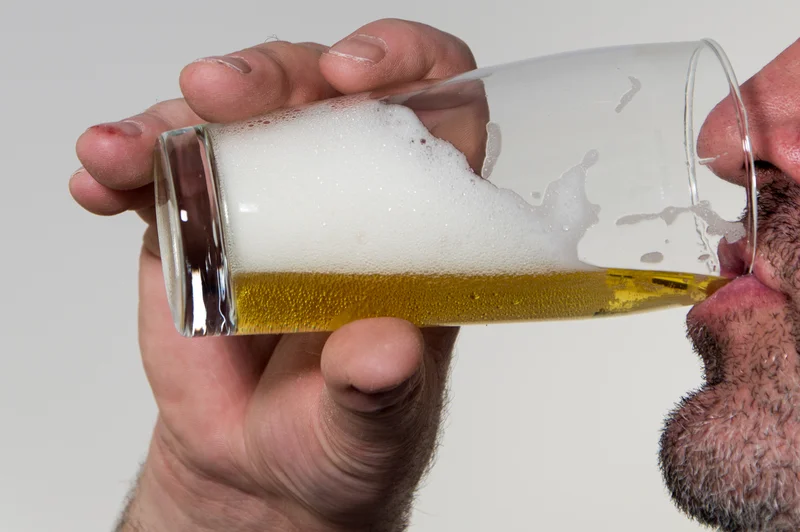- Rajkul Sr. Sec. School
- (+91) 9992163563
- (+91) 7056550777
- rajkulschool@gmail.com
Genetics and Alcoholism: Whats the Connection?
Акция что это такое простыми словами: виды и какие бывают
September 13, 2022Nowa strona internetowa www JRHolding.pl
May 24, 2023Genetics and Alcoholism: Whats the Connection?

At the AGRF, the samples were genotyped using the Agena Bioscience MassARRAY® on a Compact Spectrometer, IPLEX GOLD chemistry. The complete processed SNP genotypic data for the ADH5 and ALDH1A1 genes is available as a supplementary file. Along that entire spectrum are various behavioral therapies, support groups, and the use of medically-assisted treatment (MAT).

Addictions Treated
However, it is important to note that genetics alone do not determine whether an individual will become an alcoholic. Environmental factors, such as social influence and exposure to alcohol, also play a significant role. One of the main factors in understanding the genetic predisposition to alcoholism is the individual’s genome. The genome is the complete set of genetic material in a person’s cells and is responsible for determining many aspects of their health and development.

Addiction Therapy
- Studies have shown that multiple genes are correlated with drug addiction susceptibility and are considered candidates for personalized medicine development in the Jordanian population 30,31,32,33.
- Additionally, it can help researchers further investigate the genetic basis of alcoholism and develop targeted treatments.
- As noted above, the functional ADH1B polymorphism isnot represented on GWAS platforms; GABA-receptor genes are often nominallysignificant but well below genome-wide significance in these studies.
- There, you’ll receive medically-assisted treatment and dual diagnosis treatment to deal with any cravings or co-occurring mental health issues you may be battling.
In contrast, children raised in alcohol-free homes or those where responsible drinking is modeled may have a lower risk. Genetics can influence the risk of alcoholism by affecting factors such as alcohol metabolism, neurotransmitter function, and the brain’s response to alcohol. Supportive networks should also include access to professional guidance and counseling services for individuals with a genetic predisposition to alcoholism. Genetic counselors, therapists, and addiction specialists can offer personalized guidance and support tailored to each individual’s unique genetic profile. In addition to predicting an individual’s response to medications, pharmacogenetics can also help identify potential adverse reactions or side effects. By understanding an individual’s genetic predisposition to certain side effects, doctors can adjust the medication dosage Drug rehabilitation or choose a different medication altogether to ensure the safety and well-being of the patient.

Genes contributing to the risk of alcohol dependence
Qualified investigators can access freely available GWAS datasets via the database of Genotypes and Phenotypes (dbGaP) 83 and several studies have used this resource for replication samples. The transition to addiction involves multiple neuroadaptations and much of our understanding of these processes has so far been obtained from animal studies. Rather, in AUD, only about fifty percent of the risk appears to be attributed to our genes.
In conclusion, individuals with a genetic predisposition to alcoholism require supportive networks to assist them in navigating the challenges of their condition. These networks should provide educational resources, community support groups, and access to professional guidance and counseling. By building strong and supportive networks, we can help individuals with a genetic predisposition to alcoholism live healthy, fulfilling lives and minimize their risk of developing the disease. In conclusion, genetic counseling can be a valuable tool for individuals at risk of developing alcoholism due to their genetic predisposition.
- For instance, the ADH1B gene, commonly studied in association studies, has been linked to the brain’s reward pathways.
- Studies have consistently found that individuals with a family history of alcoholism are at a higher risk of developing the disorder themselves.
- It is now generally accepted that genetic risk for alcoholism is likely to be due to common variants in numerous genes, each of small effect, however rare variants with large effects might also play a role.
- Genes alone cannot determine if someone will become an alcoholic, as environmental factors also play a significant role.
- However, individuals with a family history of alcoholism are more likely to carry these ALDH variants and have an increased risk of developing alcohol dependence.
- Additionally, genes involved in the brain’s reward system, such as the dopamine receptor genes, can influence an individual’s response to alcohol.
- Another epigenetic mechanism that has been implicated in alcoholism is histone modification.
We published a comprehensive review of the genetics of alcoholism over a decade ago 1. Since then, there have been significant advances in techniques available for mapping genes and as a result considerable changes in outlook have occurred. It is now generally accepted that genetic risk for alcoholism is likely to be due to common variants in numerous genes, each of small effect, however rare variants with large effects might also play a role. After years of family-based linkage studies and case-control candidate gene studies, attention has shifted to large scale genome-wide association studies (GWAS) for the detection of novel common variants (≥ 1%). Exome and whole genome sequencing studies for the detection of rare variants are beginning to emerge.
- This suggests that genetics play a significant role in determining an individual’s susceptibility to alcoholism.
- Several studies on the Jordanian population have suggested a potential correlation between different genetic polymorphisms and drug addiction 38,39,40.
- Identifying genetic markers and understanding their impact on an individual’s susceptibility to alcoholism can inform personalized treatment approaches.
The Link Between Genetics and Alcoholism – Understanding the Role of Genes in Alcohol Addiction

It has long been known that there is a strong genetic component to alcoholism, and recent research has highlighted the role of dopamine in this genetic predisposition. By studying the genome, researchers can gain a better understanding of the genetic factors that contribute to the development of alcoholism. This knowledge can help in the development of targeted prevention and treatment strategies.

Several other cohorts from dbGAP also contributed to large sample size of alcohol consumption GWAS by Liu et is alcoholism genetic al, 2019. Genome-wide data on 14,904 DSM-IV diagnosed AD individuals and 37,944 controls from 28 case/control and family-based studies were meta-analyzed for PGC’s AD GWAS. Between the D2 dopamine receptor findings in the 1990s and 2020, researchers have identified more than a dozen variants for AUD.
